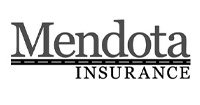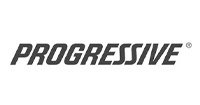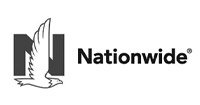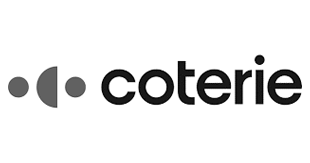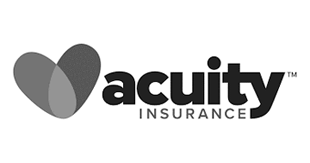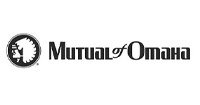What is general liability insurance?
General liability insurance
General liability insurance covers common business risks like customer injury, customer property damage, and advertising injury. It protects your small business from the high costs of lawsuits and helps you qualify for leases and contracts.
Does your small business need general liability insurance?
Most small companies need this insurance, especially if you rent or own an office or commercial space. And many client contracts include requirements for general liability insurance.
Even if these don’t apply to you, small businesses that work directly with clients and customers usually benefit from commercial general liability insurance, also known as a CGL policy. This insurance policy can keep your company financially stable if you’re sued by a customer or competitor.
Because general liability insurance provides such important coverage, most small business owners buy the policy right after they start their business.
What does commercial general liability insurance cover?
General liability insurance provides coverage for common liability claims from third parties (people outside your business).
Commercial general liability insurance covers legal defense costs if someone sues over a bodily injury, property damage, or advertising injury. Your CGL policy can pay for everything from hiring a lawyer to court-ordered judgments and settlements.

General liability coverage is essential if your business:
- Has a location that is open to the public
- Works closely with customers or clients
- Handles client property
- Rents or owns commercial property
Is general liability insurance required by law?
Generally not, but states may mandate it for certain industries like construction. While general liability insurance isn’t typically required by law, it’s still likely required by your landlord, mortgage company, or clients.
A landlord or client may ask your business to show a certificate of insurance as proof of your general liability insurance coverage. This document verifies that your business can handle any personal injury or property damage lawsuits.
And more importantly, the certificate gives your property manager, bank, or customer peace of mind that they won’t be stuck paying the costs of a lawsuit against your company.
How does commercial general liability insurance protect my business?
General liability insurance can help pay for legal fees from common third-party lawsuits. Here are a few common situations where general liability coverage protects home businesses, contractors, and small businesses.
| Home business | Contractor | Small business | |
|---|---|---|---|
| Liability protection | You may need general liability to pay for a lawsuit from a courier who slips on your icy doorstep while delivering documents. | A client may ask you to provide a certificate of insurance in case you damage their equipment. | You sign a commercial lease and your landlord requires general liability insurance. |
| Advertising injury protection | You launch a website and want protection against accidental copyright infringement. | You want protection in case someone involved with a project accuses you of libel or slander. | You launch your first advertising campaign and want protection against advertising injury lawsuits. |
How do I get a general liability insurance policy?
You can start by filling out Safe Harbor Insurance’s free online application for general liability insurance. To apply, you’ll need to provide a little basic information about your business. That includes your:
Business name
Business operations
Number of employees
How much does general liability insurance cost?

Your cost is based on a few factors, including:
- Amount of coverage
- Industry and risk factors
- Location
- Number of employees
General liability insurance costs an average of $42 per month. This is based on the median cost of policies. And 17% of Safe Harbor Insurance’s small business customers pay less than $25 per month for their policies.
How do I get proof of general liability insurance?
If you buy CGL coverage through Safe Harbor Insurance, you can usually get proof of insurance online on the same day you start a business insurance policy.
Traditional insurance agents can take several weeks to send a certificate of general liability insurance to new customers. This can be an issue for a business owner who needs immediate proof of insurance to sign a pending contract.
With Safe Harbor Insurance, you can provide proof quickly for the contract or lease you’re planning to sign.
Do independent contractors need general liability insurance?
Like any small business owner, independent contractors can be sued and held liable for customer injuries, customer property damage, or advertising injuries.
While contractors who don’t have a physical location or expensive equipment probably don’t need a business owner’s policy or commercial property insurance, they will still benefit from general liability insurance.
If you don’t want to purchase a general liability policy, you can ask your clients to add you to their policies as an additional insured. This will cover you for as long as you work for the client who insures you.
Keep in mind that your clients might pay a higher insurance premium if they add you to their general liability policies. And your coverage ends once the contract expires.
What if my business needs more coverage?
If your business has high risks or revenue, you can extend your general liability insurance coverage with commercial umbrella insurance. Umbrella insurance increases your maximum policy limit, meaning your insurance company can cover more expensive lawsuits.
Your business probably faces liability risks beyond what a general liability insurance covers. To get the protection you need, you can bundle these policies with general liability:
Commercial property insurance covers your business property. When bundled with a commercial general liability policy, it’s known as a business owner’s policy (BOP). And it’s usually available for a discount.
Cyber liability insurance protects against cyberattacks and data breaches. It’s an important policy for businesses that handle credit cards and other sensitive customer information.
Product liability insurance can help pay for lawsuits if a product you made or sold injures a customer or damages their property.
Hired and non-owned auto insurance (HNOA) covers vehicles used but not owned by your business. (Commercial auto insurance can be purchased separately to cover vehicles owned by your business.)
Liquor liability insurance protects against risks associated with serving alcohol. It’s usually required for a liquor license.
What is the difference between general liability and professional liability insurance?
General liability covers customer injuries, customer property damage, and advertising injuries. Professional liability insurance covers disputes over the quality of professional services.
Almost all businesses need general liability insurance. But businesses that provide professional services need added protection from mistakes and unhappy clients.
That’s where professional liability coverage comes in. This policy helps professionals like accountants and auditors, lawyers, consultants, and insurance agents avoid high costs from lawsuits related to the quality of your work.
What does general liability insurance cover?
General liability insurance covers common lawsuits that arise from everyday business activities. It protects against customer injuries, damaged customer property, and accusations of defamation and copyright infringement.
General liability insurance provides coverage for:
- Third-party bodily injury
- Product liability
- Third-party property damage
- Advertising injuries
Third-party bodily injury
If a customer is hurt in an accident involving your business, general liability insurance can help pay for medical expenses. It also covers legal expenses if a customer sues over the injury.
Example: A customer trips over a carpenter’s toolbox and breaks a leg. The doctor’s bills add up fast, so the customer sues to recoup his losses. Your policy can cover the cost of medical expenses, including the emergency room bill. If the customer refuses your assistance and opts to sue at a later date, your policy can help cover the cost of hiring a lawyer.
Third-party property damage
General liability insurance can cover expenses to repair or replace customer property accidentally damaged by a business.
Example: A general contractor backs his pickup truck into a client’s fence. Depending on policy limits, general liability coverage can pay for some or all expenses associated with replacing the damaged fence.
Product liability
Not all property damage or customer injuries happen inside a store. If a business manufactures, distributes, or sells products, it can be sued over the harm its products cause to people or property.
Example: A customer buys a container of a lawn care company’s organic fertilizer. After applying it to her lawn, she suffers a serious allergic reaction and misses three days of work. Blaming her illness on the fertilizer, she sues the lawn care business for lost wages. A general liability policy can typically cover the legal expenses associated with product liability lawsuits.
Advertising injuries (libel, slander, and copyright)
If someone sues a business owner or employee over slander, libel, or copyright infringement, general liability insurance can help pay for legal expenses.
Example: A maid at your house cleaning company tweets a rude comment about sloppy work done by a competing company. The tweet goes viral, and the owner of the competing business decides to sue for libel. Advertising injury coverage in general liability insurance can help pay for legal defense expenses and settlement or judgment costs when you’re sued over advertising mistakes.
How much general liability coverage do I need?
If you are purchasing general liability insurance to fulfill the terms of a contract or lease, you need to make sure that your coverage meets the requested policy limits. The amount of coverage you need also depends on factors such as the size of your business, its industry risks, and the number of employees.
Most small businesses opt for the standard $1 million per occurrence / $2 million aggregate policy limits. This means the policy will pay up to $1 million to cover a single claim, with a $2 million limit for the lifetime of the policy (typically one year).
General liability insurance does not cover:
- Professional errors
- Employee discrimination lawsuits
- Vehicles used by a business
- Employee injuries
- Damage to business property
- Liquor liability
Professional errors
Professional liability insurance, also called errors and omissions insurance, can cover lawsuits over professional mistakes, including undelivered services and missed deadlines.
Example: A real estate agent accidentally lists a house as having hardwood floors when it really has laminate wood flooring. After the home is sold, the homeowner discovers the error and files a lawsuit. Professional liability insurance could help cover the agent’s legal costs.
Employee injuries
Workers’ compensation insurance is the policy that covers medical expenses, physical therapy, and some lost wages for employees.
Example: A cook at a restaurant gets splashed with hot oil and suffers third-degree burns. Workers’ comp helps pay for the emergency room bill and part of his missed wages while he recovers.
Damage to business property
A business owner’s policy, which combines general liability insurance with commercial property insurance, can help cover the cost of replacing stolen business property. It can also pay for repairing or replacing business property damaged by fire or certain weather events.
Example: A fire at an office complex damages a tax preparation company. Commercial property insurance can help pay for replacement computers, equipment, and building renovation costs.
Employee discrimination lawsuits
Employment practices liability insurance (EPLI) can cover lawsuit expenses related to claims of harassment, discrimination, and wrongful termination.
Example: An employee at an engineering business files a lawsuit claiming partners are not assigning her to high-profile projects because of her ethnicity. An EPLI policy could cover legal expenses for the firm.
Vehicles used by a business
Personal auto insurance policies almost always exclude business use. Vehicles owned by a business must be covered by commercial auto insurance. Personal vehicles used for work purposes, along with leased or rented vehicles, can be covered by hired and non-owned auto insurance, which you can add to a general liability policy.
Example: An IT consultant driving his car to meet a client gets into an accident. His personal auto insurance policy won’t pay for damages, but a hired and non-owned policy would.
Liquor liability
Liquor liability insurance covers lawsuits over incidents caused by people who became intoxicated at your business. That could include drunk driving, assault, and vandalism.
This policy is required for businesses that serve alcohol. You can purchase it as a standalone policy or add it to your general liability policy.
Example: After leaving a bar, intoxicated patrons vandalize the office building next door. Liquor liability insurance covers the bar’s legal defense costs when the office sues.
General liability exclusions
General liability insurance has some additional coverage exclusions. For example, it doesn’t pay defense costs for intentional copyright infringement or willful negligence – which can be criminal offenses. It also doesn’t cover intentional injury or property damage.
Read your policy carefully to see what is and isn’t covered. To fill gaps in coverage, you can add endorsements to your policy. Check with an Safe Harbor Insurance agent to make sure your general liability policy includes all the coverage you need.
How much does general liability insurance cost?
The cost of general liability insurance varies based on your business operations and policy limits, among other factors.
Average general liability insurance costs for Safe Harbor Insurance customers
Regardless of policy limits, the median cost of general liability insurance is $42 per month ($500 annually). The median cost offers a more accurate estimate of what your business is likely to pay than the average cost of business insurance because it excludes outlier high and low premiums.
Most small business owners (48%) pay between $300 and $600 annually for their policies, and 17% pay less than $300. These figures were derived from an analysis of thousands of insurance policies purchased by Safe Harbor Insurance small business customers.

Industry risks impact general liability insurance costs
Our analysis of general liability insurance costs reveals that your industry has the biggest impact on policy costs. Generally, high-risk industries pay higher premiums, while low-risk industries enjoy lower rates.
For example, brick-and-mortar retailers open to the public are exposed to more risk than IT consultants working from a home office. The graph below illustrates how the industry you work in affects what you’ll pay for a general liability policy.

How coverage limits affect general liability insurance costs
If you want car insurance that pays for a wide range of damage, you have to pay more for it. The same rule applies to business insurance. If you want a policy with higher coverage limits, expect to pay more than you would for basic coverage.
The most popular general liability policy is the $1 million / $2 million policy. This includes:
- $1 million occurrence limit. While the policy is active, the insurer will pay up to $1 million to cover any single claim.
- $2 million aggregate limit. During the lifetime of a policy (usually one year), the insurer will pay up to $2 million to cover claims.
The majority of Safe Harbor Insurance customers (92%) choose a policy with $1 million / $2 million limits. Five percent of our customers choose a policy with $2 million / $4 million limits, the next most popular choice.
Tips for finding general liability cost savings
Bundle your insurance policies. With insurance, businesses can sometimes find discounts when they purchase multiple policies from the same provider. For example, if your business is considered low risk, you may qualify for a business owner’s policy. A BOP bundles commercial general liability and property insurance together at a reduced rate.
Pay your entire premium upfront. Your general liability policy premium can typically be paid in monthly or annual installments. It might be tempting to go with a smaller monthly payment, but consider paying the full premium. Businesses can usually save money this way because many insurers offer discounts for annual premiums.
Proactively manage your risks. If your small business has a clean claims history, expect to pay lower insurance rates. An effective way to do this is to create a comprehensive risk management plan. For example, you might:
- Develop a thorough training program for employees
- Invest in a security system
- Compile rules for posting to social media
- Create procedure checklists and reviews
- Minimize hazards on your premises
Learn more about business insurance costs
Insurance premiums vary based on the policies a business buys. See our small business insurance cost overview or explore costs for a specific policy.
- Professional liability insurance
- Business owner’s policy
- Errors and omissions insurance
- Workers’ compensation insurance
- Cyber liability insurance
- Commercial umbrella insurance
- Commercial auto insurance
- Employment practices liability insurance
- Directors and officers insurance
How to buy general liability insurance with Safe Harbor Insurance
In most cases, we’ll deliver multiple quotes from top U.S. carriers as soon as you finish the application. Look them over and pick the policy that works best for you. A licensed Safe Harbor Insurance agent is available to assist you throughout the process.
Once you purchase a policy, you can access your account and obtain a certificate of insurance, which is a formal proof-of-insurance document you need to show when you sign certain contracts or apply for professional licenses. Typically, it takes between 24 and 48 hours to complete the process and gain insurance for your business.
Auto services
Building design
Cleaning services
Construction and contracting
Consulting
Finance and accounting
Food and beverage
Healthcare professionals
Home-based businesses
Installation professionals
Insurance professionals
IT / technology
Landscaping
Manufacturing
Media and advertising
Nonprofits
Personal care
Pet care
Photo and video
Printing and copying
Professional services
Real estate
Retail
Sports and fitness
Therapy and counseling
Trucking
Wholesale
General liability claims
A customer slips in a spill at your business, breaks a wrist, and sues to recoup medical expenses.
An employee drops a customer’s smartphone and it shatters. The customer sues for damages.
An employee makes disparaging remarks about a competitor, who sues for slander.

